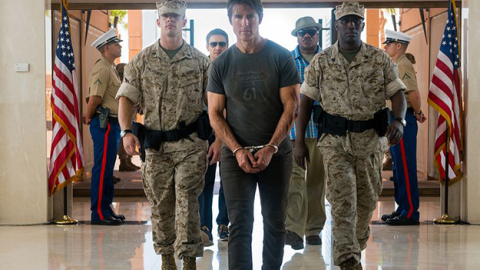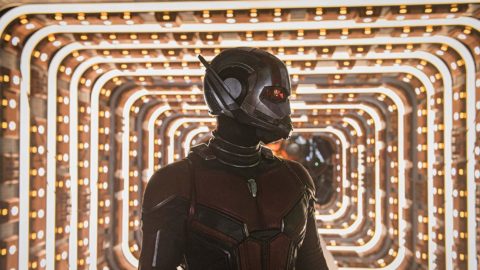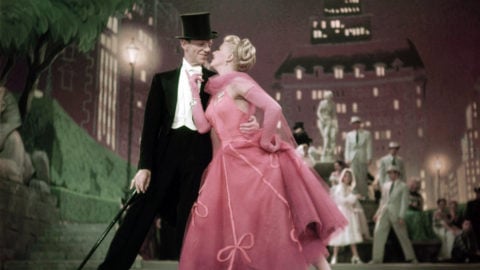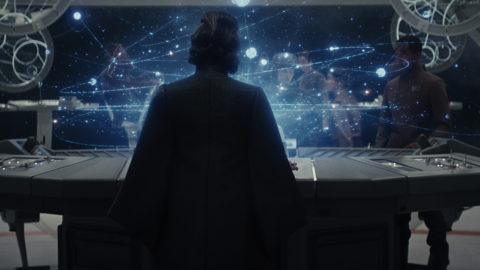Deep Focus: Mission: Impossible - Fallout
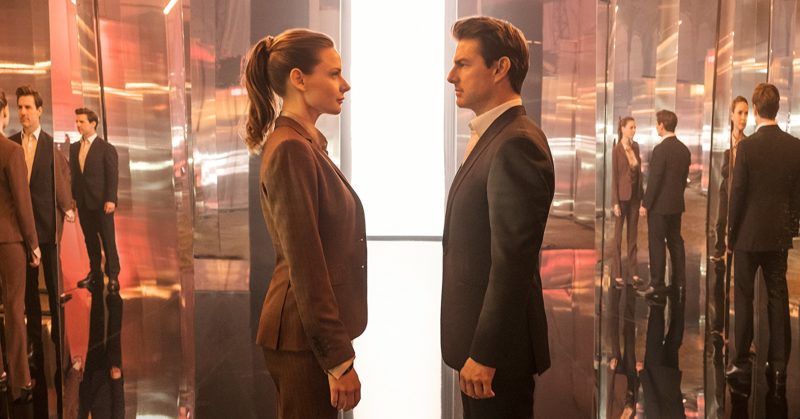
The sixth movie in producer-star Tom Cruise’s Mission: Impossible series is a marvel of American engineering. This exciting, semi-adult cartoon of espionage could have been laid out in an intricate schematic instead of a screenplay. Its savvy amalgamation of gimmickry, glamour, and athletics, on the one hand, and spy games played like mind games, on the other, generates tension and release for a super-swift 147 minutes.
To maintain rooting interest, the film injects a shot of idealism every 20 minutes. Cruise’s Impossible Missions Force (IMF) agent, Ethan Hunt, refuses to sacrifice innocent lives for the greater good. He won’t leave any IMF agent behind. When he goes undercover with corrupt movers and shakers, he strategizes to avoid killing other law enforcers. He even apologizes to a Parisian parking cop wounded in the crossfire.
The writer-director, Christopher McQuarrie, has worked with Cruise for over a decade, writing and co-producing Valkyrie (2008) and writing and directing the previous Mission: Impossible movie, Rogue Nation (2015), as well as Jack Reacher (2012). He’s also done credited or uncredited work on the scripts for The Edge of Tomorrow (2014), The Mummy (2017), and Mission: Impossible – Ghost Protocol (2011). He cleverly uses Hunt’s moral integrity as a source of suspense. We wonder, “How can he keep his conscience clean and get the job done this time?” He also knows how to keep the drama in his star’s wheelhouse, mostly by keeping him moving. McQuarrie builds extreme action and “give” into each of the film’s acts, enabling Cruise’s Hunt to test his mettle and his metal, whether he’s operating a vintage BMW sedan or a cutting-edge Airbus helicopter. Like Richard Lester’s famous 1959 comedy short, this is a running, jumping, and standing-still film—although the closest Hunt comes to standing still is when stuntman/actor Liang Yang wraps a sink-pipe around Cruise’s neck.
The movie dips into bathetic hero-worship only when it describes the toll it has taken on Hunt to divorce his wife Julia (Michelle Monaghan) for her protection. (Quelle surprise!) It’s not enough for that brass-tacks agent Luther Stickell (Ving Rhames) to rumble Hunt’s praises. We must hear Julia herself, a humanitarian nurse, give her ex-husband credit for pushing her to lead a purposeful life. We briefly fear that the movie will turn into a Trump cabinet meeting lovefest. Will IMF agent Benji Dunn (Simon Pegg) proclaim Ethan “the kindest, bravest, warmest, most wonderful human being I’ve ever known in my life?” Luckily, the filmmakers restrain themselves. The result is a spiffy, crowd-pleasing contraption.
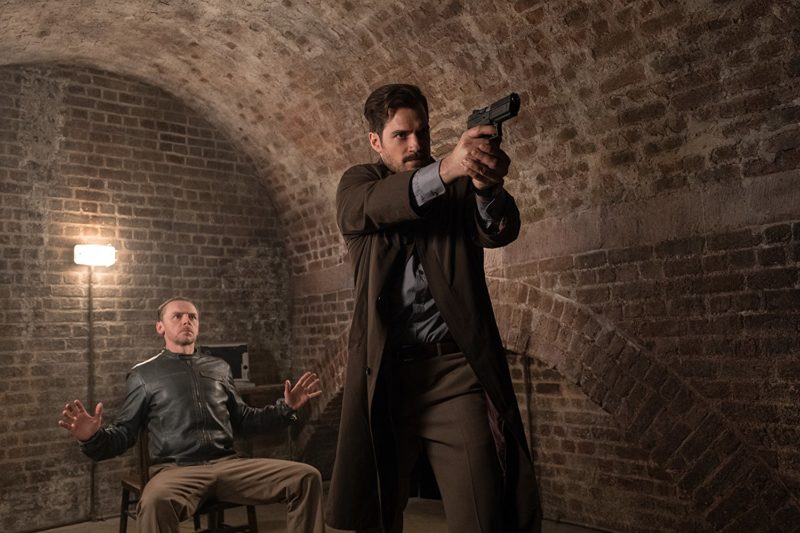
Getting a canny writer-director like McQuarrie to take the helm, twice in a row, ensures the continuity of melodrama and spectacle. His films lack the improbable lilt of Brad Bird’s Ghost Protocol, the hyper-personal paranoia and voyeurism of Brian De Palma’s vision in the first film, or the romanticism of the John Woo–directed, Robert Towne–scripted M:I 2. But they’re a big step up from J.J. Abrams’s typically mechanical M:I 3. For the second time, McQuarrie’s resourcefulness and energy refresh the by-now familiar tale of Hunt beating the clock to foil yet another disillusioned agent turned nihilistic madman. This time the top villain is the mysterious “John Lark,” who aims to shock our decadent global civilization into starting over. He gathers the materials to nuke three holy cities: Rome, Mecca, and, of course, Jerusalem, close to Armageddon’s original location. Lark’s atheistic credo: “The greater the suffering, the greater the peace.”
The lunatic visionary of Mission: Impossible – Rogue Nation, Solomon Lane (Sean Harris), comes back into play, this time as a bargaining chip. A CIA agent named Walker, aka The Hammer (Henry Cavill), has crushed Solomon’s network of embittered ops (“the Syndicate”), making way for Lark’s apostles, who really are called “the Apostles.” Angela Bassett’s Erica Sloan, the new CIA director, orders that Walker be part of Ethan’s mission. Will Walker be competitor, friend, or foe?
The inspiration behind the big-screen M:I series has been to combine the luxurious and/or exotic surfaces of the James Bond movies with a spy vs. spy background as bleak as John le Carré’s. Secret and special services and police and security agencies compete for dominance within each country, and they work at cross-purposes on the global stage. McQuarrie puts these conflicts into sleek comic-strip form. Except for the IMF regulars, everyone’s allegiance is in doubt from the moment they show up on screen. That includes the returning British operative Ilsa Faust (Rebecca Ferguson), who was Hunt’s match in Mission: Impossible – Rogue Nation. One character who’s slippery to the end is the chic but lethal arms dealer known as “the White Widow,” who puts on an elegant gala as a British philanthropist in Paris when she isn’t striking dirty deals or wielding a mean butterfly knife. Vanessa Kirby (Princess Margaret in The Crown’s first two seasons) plays her superbly and knowingly, as if in homage to another Vanessa, Redgrave. Indeed, Redgrave played the arms dealer “Max” in the first film, and, in a highly touted Easter egg, the White Widow refers to Max as her mother.
Cinematographer Rob Hardy (Annihilation) uses the giant screen to exploit the glittering nocturnal allure of Paris’s Grand Palais and the sun-kissed, sky-scraping grandeur of New Zealand’s Southern Alps (masquerading as Kashmir). He and the rest of McQuarrie’s team provide the wow factor while Cruise supplies the whoa factor, whether he’s performing aero-acrobatics during a HALO jump, hanging from tall buildings and cliff walls, or chasing a heartless enemy through perilous canyons as he tries to avert nuclear disaster. And of course we get the obligatory “See Tom run” scene, highlighting, under duress, his perfect form (tight core, efficient, air-chopping arms).
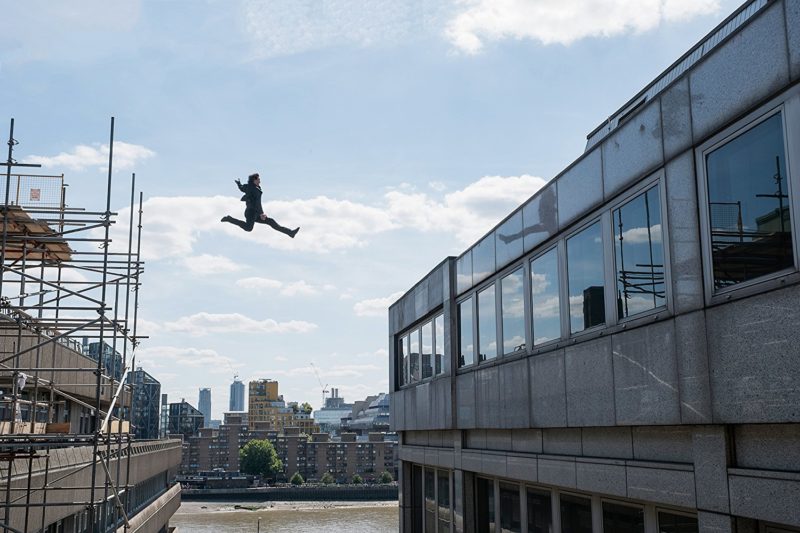
Age and experience have burned off Cruise’s “Tom Terrific” over-eagerness. He’s grown into his cockiness and maintains an action-star charisma. He masters a dynamic evasiveness—his face never becomes entirely blank. It keeps us guessing about Hunt’s next move. The supporting cast keys into his intensity. This time out, Kirby may be the only one who does the completely unexpected, but Alec Baldwin is gratifyingly crisp as the IMF Secretary, and Pegg, though not as amusing as in previous outings, projects a careworn version of his exuberance that’s unusually affecting. And it’s sweet to see the resemblance between Ferguson and Monaghan: Hunt is a soft touch for a certain type.
As sensational entertainments go, the Mission: Impossible movies have been remarkably sophisticated. Cruise and his M:I collaborators hark back to the “thrill pictures” of Harold Lloyd in their skill at setting up the high-risk antics stuntpeople call “gags.” They plant their capers in the real physical universe and design them to build one gut-churn upon another. McQuarrie and company realize that part of the visceral charge in movies from the days of Lloyd and Douglas Fairbanks to Jackie Chan and Cruise comes from the audience’s belief that our action star/hero is risking life and limb in front of our very eyes. (And we know that Cruise does take risks and has broken bones.)
But unlike the makers of (for example) the good-natured Dwayne Johnson vehicle Skyscraper, the M:I filmmakers don’t stop there. The M:I team has learned that to slay the audience, a stunt gag must escalate in the manner of classic silent-comedy gags, building in stages. As James Agee wrote in “Comedy’s Greatest Era,” the ultimate step was “the boffo . . . the laugh that kills.” Indeed, the best parts of Mission: Impossible – Fallout are so skillfully calibrated and outrageous that they’re both hair-raising and inexplicably gleeful.
Agee wrote that an ideal gag “would bring the victim up the ladder of laughs by cruelly controlled degrees to the top rung, and would then proceed to wobble, shake, wave and brandish the ladder until he groaned for mercy.” That’s what Mission: Impossible – Fallout does, too. I stayed to the final credit, in case there was a clever tag, but I didn’t feel cheated when there wasn’t one. I needed the time to catch my breath.
Michael Sragow is a contributing editor to Film Comment and writes its Deep Focus column. He is a member of the National Society of Film Critics and the Los Angeles Film Critics Association, and a contributor to the Criterion Collection.



